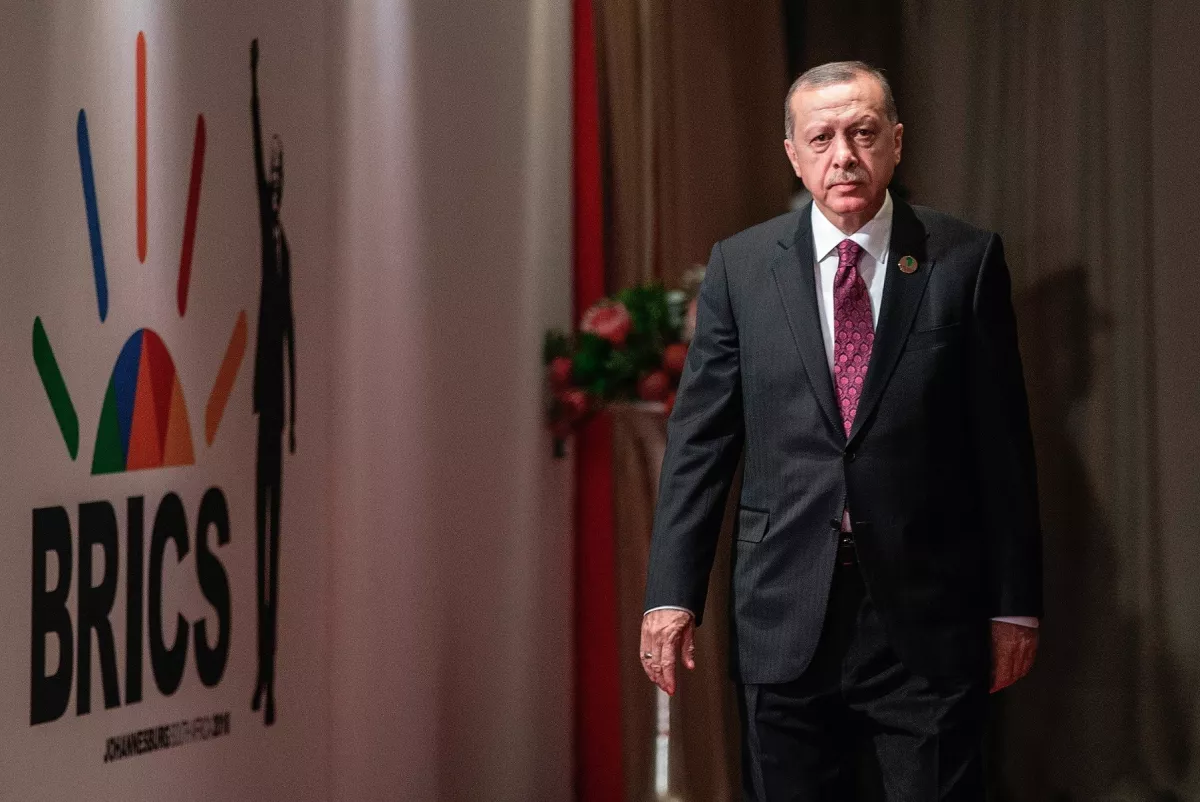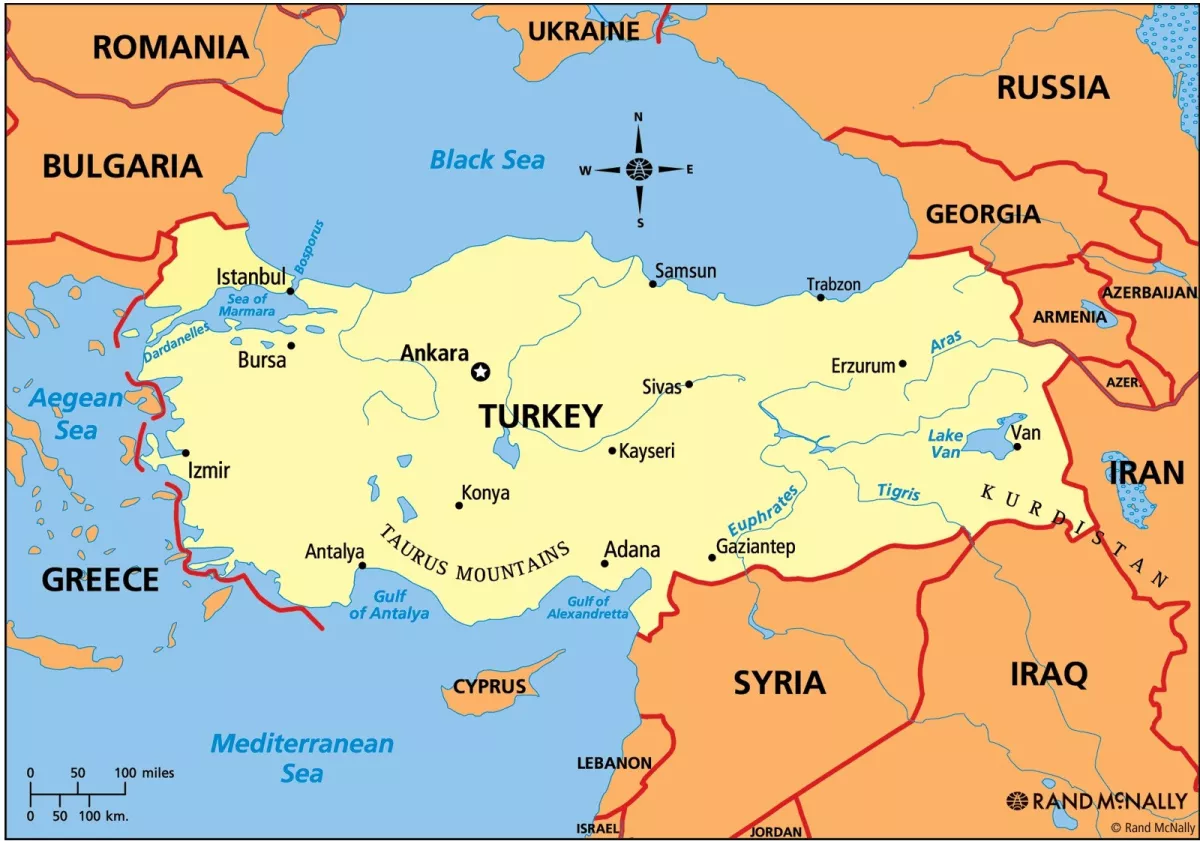What to expect from Türkiye’s BRICS membership? Political risks and rewards
On September 7, Türkiye announced that it officially submitted a request to join the BRICS group of major emerging market nations. The BRICS alliance was founded in 2006 by Brazil, Russia, India, and China, with South Africa joining in 2010. However, it has recently undergone a major expansion and now includes Iran, Egypt, Ethiopia, and the United Arab Emirates. Saudi Arabia has said it's considering joining, and Azerbaijan has formally applied.
Over the years, Ankara’s bid to join BRICS has faced numerous twists and turns. As a country with relatively close relations with the West, Türkiye's interest in BRICS has long drawn attention from Western powers due to its membership in NATO and close alignment with the United States (US), particularly in defense procurement and arms import. Therefore, as a NATO member and a key candidate for the European Union, Ankara’s potential accession to BRICS has long drawn Western attention.
Türkiye’s potential BRICS membership could open up new financial avenues. The BRICS, positioning itself as an alternative to Western-dominated institutions like the World Bank and International Monetary Fund, offers new members access to its development bank and the opportunity to expand their political and trading relationships. As global power dynamics shift, Türkiye's entry into BRICS could be a significant step in strengthening the global south, given its status as a key regional and global player.

Consequently, Ankara's pivot toward BRICS should not be surprising given the recent rapprochement with Russia and China-led blocs, including the Shanghai Cooperation Organization (SCO). Despite criticism from the West, Türkiye’s decision to move closer to the SCO and BRICS seems like a balancing act. The balancing act enables Ankara to diversify strategic and economic partnerships beyond the West and NATO.
Diversifying its international partnerships does not signify Türkiye's departure from NATO, but its poor decision to purchase the Russian S-400 missile defence system was a significant breach of NATO protocols, causing a major rift within the alliance and leading to discussions about Türkiye potentially moving away. For Türkiye, economic interests and benefits are of key importance, considering the continuing economic troubles and financial risks associated with the devaluation of the national currency. Moreover, energy dependency on Russia, which supplies nearly 50 per cent of the country’s natural gas needs, make the Ankara-Moscow partnership significant.
Joining BRICS presents Türkiye with a unique opportunity to enhance its soft power among global southern countries. As a significant geopolitical actor with broad ambitions and a robust political agenda, Türkiye's BRICS membership could be a pivotal moment during the upcoming BRICS summit in Russia's Kazan city, as noted by the Kremlin.
In turn, Russia needs strong allies and economic partners to compensate for disrupted economic partnerships and supply chains due to the harsh economic sanctions. Notwithstanding certain disparities in geopolitical visions, Moscow and Ankara found common interests in energy and financial partnership, particularly amid the raging Russo-Ukraine war.

Türkiye's unique geographical location gives it strategic importance in military, economic, and energy transport. It has the potential to become a global hub for land, sea, and air routes connecting Europe, Asia, and Africa. This strategic advantage, coupled with potential memberships in the SCO and BRICS, does not necessarily imply a departure from or downgrade of its NATO membership or partnership with the European Union.
On the contrary, Ankara has consistently demonstrated a strong commitment to maintaining its NATO membership, using it as leverage on security-related issues. NATO's interests are best served by fostering a strong relationship with Ankara, given its influential position, which can strengthen the alliance's reach and power beyond traditional Western boundaries.
Ankara's pivot toward BRICS would give it additional economic benefits, but it is arguable what kind of political benefits Türkiye will get from it. BRICS is expanding, but it is still far from being a real power with the ability to challenge G7 bloc countries and impose its agenda.








